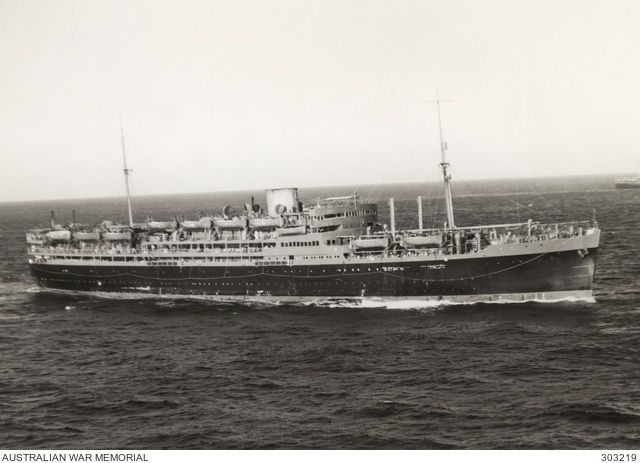The ‘Enemy alien’ with an Imperial Service Medal
- Aug 1, 2025
- 4 min read
Updated: Aug 2, 2025
by Julian Scola
If only my father has taken his uncle’s advice he could have avoided becoming a 'Dunera Italian'.
Born in San Remo, Italy, in 1916, my father Giorgio Scola, had from the age of six lived in England. Aged 23 when Italy declared war on Britain and France in June 1940, Giorgio was weeks away from qualifying as an Architect – having studied first at night school in London and then quitting his day job in 1937 to study full-time.
Instead of becoming an architect, he was – like most Italian men in Britain - detained as an 'Enemy Alien' without trial or any opportunity (until much later) to show that he posed no threat to British national interests.
After being moved around a couple of temporary internment camps, he was separated from his brother and put on a ship, the Arandora Star, to be deported to Canada. He was lucky enough to survive the sinking of the former luxury liner (very overcrowded and lacking sufficient lifeboats when it was torpedoed) off the coast of Ireland. Having been returned to the UK and put in yet another internment camp, he was forced with the other Italian survivors of the Arandora Star tragedy to board the Dunera.
Apart from the anxiety of undertaking another dangerous wartime sea journey after the previous one ended so badly, and this one for some time to an unknown destination, the eight-week journey was notable for its overcrowded and insanitary conditions, robbery and violence by the military guard, and sheer boredom. The explosion of torpedoes that narrowly missed hitting the Dunera caused panic among the deportees – especially knowing that the barbed wire around the limited deck space would have made escape from the ship extremely difficult.
After just three days on the Dunera, Giorgio wrote in his diary “We begin to settle down to the unbearably monotonous routine”. A few days later he noted “By now we are beginning to be reconciled to our miserable conditions … I notice that we are heading South or South-West, still zigzagging. This goes on for some days till, despite much scepticism and ridicule, I come to the conclusion that we are definitely not going to Canada! At last, nearly everyone comes round to this conclusion except some blinding themselves to the facts.” A few more days later “There are strong rumours that we are going to Australia, calling at Freetown, Sierra Leone, and Cape Town.” Later this is confirmed.
When Giorgio disembarked in Australia and had access to newspapers, he was annoyed to read wildly inaccurate stories about the people and conditions on the Dunera and made notes to dispute the account. Unpublished until this blog post, he quotes the Melbourne Sun News Pictorial claiming that the internees were “allowed three hours in the afternoon for walking and sunbathing” and comments “Our group was permitted a daily… march of 20 minutes around the deck, and… sunbathing was not possible for lack of open deck space”.
The same publication’s report that “the internees … were captured parachutists, other prisoners of war and hundreds who had been engaged in subversive work in England” prompted Giorgio’s riposte “as far as I know there were no prisoners taken on the battlefield, and whilst the Germans were composed of Jews, refugees and merchant sailors, the Italians were nearly all long resident in England mostly occupied in the catering business.”
He spent four and a half years in Australia, in internment camps at Tatura (Victoria) and Loveday (SA). His Camp Records, held in the National Archives of Australia, list his Tatura “associates” as “fascists in the compound” including Boggio “Fascist leader” and Poggioli “also a member of the Fascist Party”, and note that “Correspondence proves his fascist sympathies”. But in October 1944 the ‘Investigation Board’ (to look into whether internees should be released) states that “He said he was a Fascist but would now adhere to the National Government and expresses his willingness to, if necessary, fight against Fascism as a good Italian”. But while he was interned, and defined by the authorities, as an Italian, his own identity, expressed in a letter to the Loveday Camp Commander, was more nuanced.

He departed Australia for the UK in March 1945 but was not released from internment until August, spending several months on the Isle of Man. He lived the rest of his life in England, married an Italian woman (my mother, Fiammetta Cattaneo) in 1951. His mother returned to Italy in the 1960s and he took his family to Italy every year to visit her and his mother-in-law.




Comments